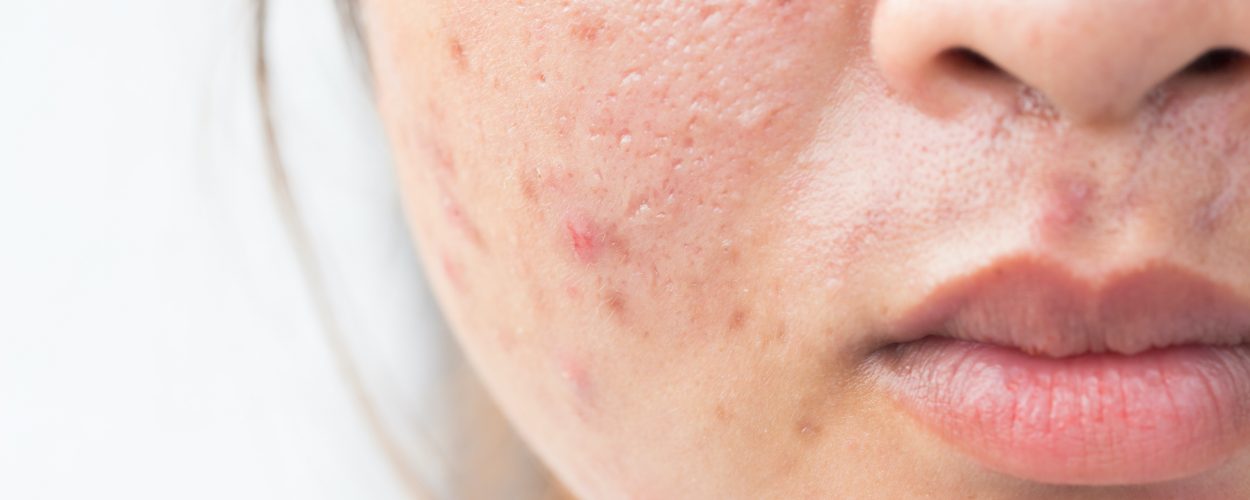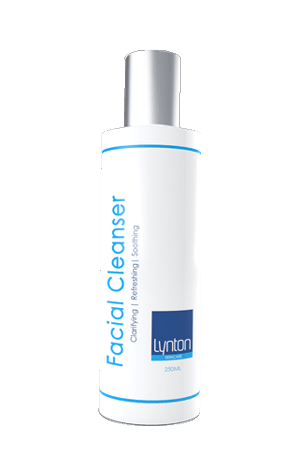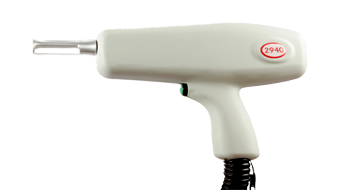
Expert Advice on How To Get Rid Of Acne From The Lynton Clinic Team
What is Acne?
Acne is a disorder of the skin’s sebaceous glands that affects over 80% of the population aged 14-30. It is one of the most common skin conditions in teenagers and young adults, but it can occur at any stage of a person’s life – even into late adulthood. There are several varieties of acne and your doctor will be able to tell you which type you have after examining your skin. It often shows up as whiteheads, blackheads or pimples, and can appear anywhere on the face, scalp, chest and back.
What Triggers Acne?
There are numerous factors that can cause acne and there are certain aspects that can trigger or aggravate it including; genes, hormones, products, air pollution, stress, certain drugs and conditions such as Polycystic Ovary Syndrome. Most of the biological reactions that trigger acne occur beneath the skin, not on the surface. However, it is still important to use products suited to your skin type, helping to relieve potential clogging of pores and to avert pimple-causing bacteria.
What are the Best Products for Acne?
 Cleansers: Cleansers that bind to debris and remove it without pushing it further into the pores are the best to use. It is also important to consider a cleanser that thoroughly removes any dirt and pollution from the environment. The Lynton Cleanser prevents blockage and is designed specifically to achieve this.
Cleansers: Cleansers that bind to debris and remove it without pushing it further into the pores are the best to use. It is also important to consider a cleanser that thoroughly removes any dirt and pollution from the environment. The Lynton Cleanser prevents blockage and is designed specifically to achieve this.
Makeup: Products that are best to use are oil-free or water-based. Choose products that are labelled as being ‘non-comedogenic’. Mineral make-up is a great option for the skin as it is natural, has very few chemicals and lets your skin breathe.
Facial Peels: In particular, those that contain Salicylic Acid. This ingredient is anti-bacterial and anti-inflammatory which is perfect for acne. Salicylic acid is a strong comedolytic, which means it helps unclog pores and decreases the amount of oil on the skin. Lynton has recently launched a Tri-Acid Fruit Peel which contains Salicylic Acid and is specially formulated for use with IPL treatments.
Supplements: This is a grey area, where some people swear by supplements and others don’t. It is known that vitamin A can be very good for acne (Roaccutane is a chemical form of vitamin A). A popular skin supplement option is a product called ‘Skin Accumax’ by the Advanced Nutrition Programme, but there are many others. Be aware that supplements don’t make up for a bad diet or lifestyle. You should always have a healthy diet first and foremost.
What is the Best Treatment for Acne?
Lynton’s IPL systems can achieve remarkable results. The gentle heating of the skin promotes fibroblast activity and stimulates collagen which may reduce mild acne scarring and accelerate the healing process. Broadband light sources such as the LUMINA, Excelight and 3JUVE are the only systems that can offer shorter wavelengths for optimum surface bacterial destruction, whilst also getting to the deep-seated bacteria existing in pustules and papules and targeting the sebaceous glands themselves.
We recommend combining treatment with DermaLux LED, a world-leading and trusted British brand for professional LED Phototherapy. We use DermaLux at The Lynton Clinic to instantly energise skin cells to revitalise a dull and tired complexion. A course of treatment offers long-lasting results, stimulating the skin’s natural rejuvenation and repair processes to promote healthy looking skin, accelerate cell renewal and resolve a range of skin concerns. See www.dermaluxled.com for more information.
Can You Remove Acne Scars?
 Although commonly considered to be a problem of adolescence, 25% of those affected by acne in their teens will go on to develop permanent scars. The effects on personal appearance caused by acne and acne scarring can cause significant psychological, social and occupational problems.
Although commonly considered to be a problem of adolescence, 25% of those affected by acne in their teens will go on to develop permanent scars. The effects on personal appearance caused by acne and acne scarring can cause significant psychological, social and occupational problems.
Skin resurfacing is an effective treatment for reducing acne scarring. The LUMINA offers acne scarring treatment using an ablative fractional laser. This creates small channels of heat in the skin removing some of the outer layers of dead skin resulting in a resurfacing effect. The heat then travels down into the deeper layers to stimulate the healing process and repair the skin. After a course of typically 3-5 treatments, the scar tissue will appear much smoother and less visible.
Find Out More
For more information please contact us on 01477 536 979 or email thelyntonclinic@lynton.co.uk.
